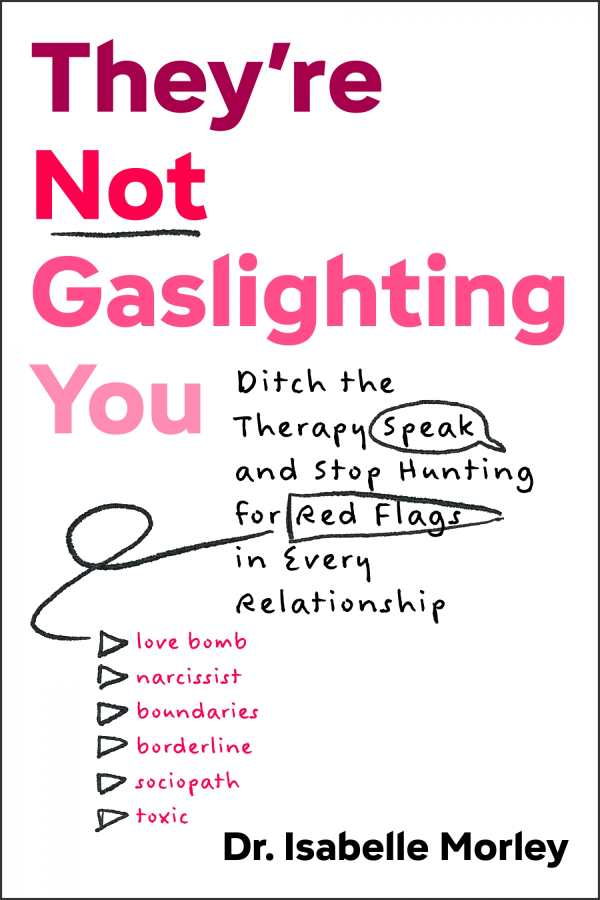They're Not Gaslighting You
Ditch the Therapy Speak and Stop Hunting for Red Flags in Every Relationship
Couples therapist Isabelle Morley’s enlightening relationship guide They’re Not Gaslighting You is about understanding human behavior through a clinical lens.
Addressing the widespread inappropriate use of clinical terminology in diagnosing relationships, also known as the weaponization of therapy-speak, the book names specific criteria attached to psychological diagnoses to safeguard the actual meanings of terms like love bombing, sociopathy, and obsessive-compulsive disorder. Organized by topic, it is moved along best by its comparative vignettes. Some scenarios depict valid behavior examples amplified by follow-up explanations; these are juxtaposed with examples of incorrect labelings of partners.
Diverse examples are provided to clarify which behaviors are concerning and which are natural. Researching gaslighting on the internet, the book notes, can lead to confirmation bias based on algorithms showing similar results. Further, identifying someone as a true narcissist requires that they meet at least five criteria out of nine. And beyond its advice on recognizing how disorders can be misconstrued in relationships, the book emphasizes seeking professional guidance for official diagnoses.
The prose is lucid and soothing, as with encouragements to “take a deep breath” if accused of inflammatory behavior and reassuring notes that people are “messy.” Its self-deprecating personal anecdotes from Morley’s marriage and prior relationships are also useful in differentiating between normal behaviors and clinical diagnoses. For instance, Morley’s husband could have seen her early reticence to talk finances as a red flag, but recognized it was her money stress in graduate school. The reigning message is empathetic: people are flawed, and it is better to avoid “armchair diagnosing,” which impedes introspection and healing.
They’re Not Gaslighting You is an illuminating relationship guide that encourages the clearheaded evaluation of interpersonal behaviors.
Reviewed by
Katy Keffer
Disclosure: This article is not an endorsement, but a review. The publisher of this book provided free copies of the book to have their book reviewed by a professional reviewer. No fee was paid by the publisher for this review. Foreword Reviews only recommends books that we love. Foreword Magazine, Inc. is disclosing this in accordance with the Federal Trade Commission’s 16 CFR, Part 255.

